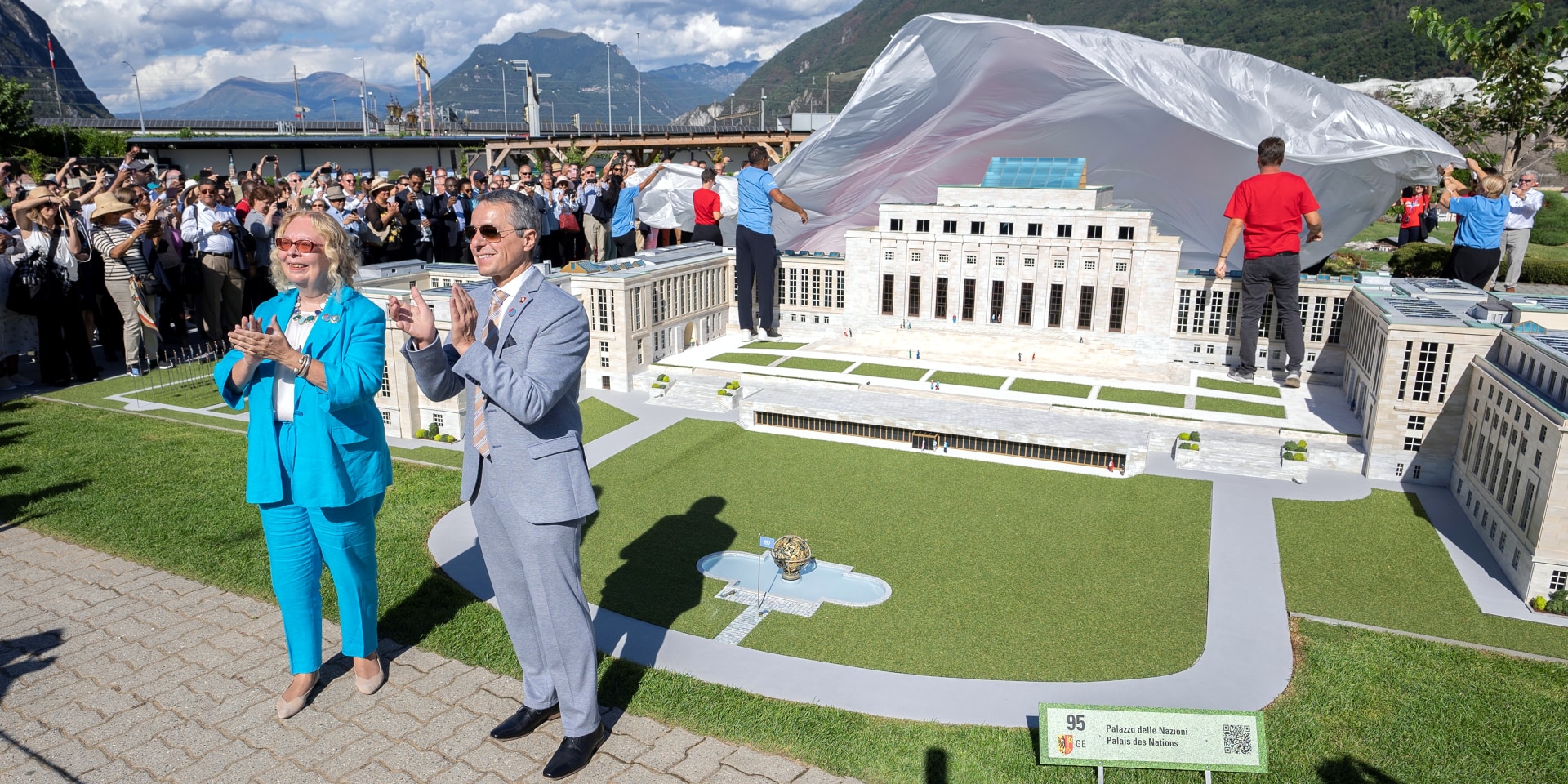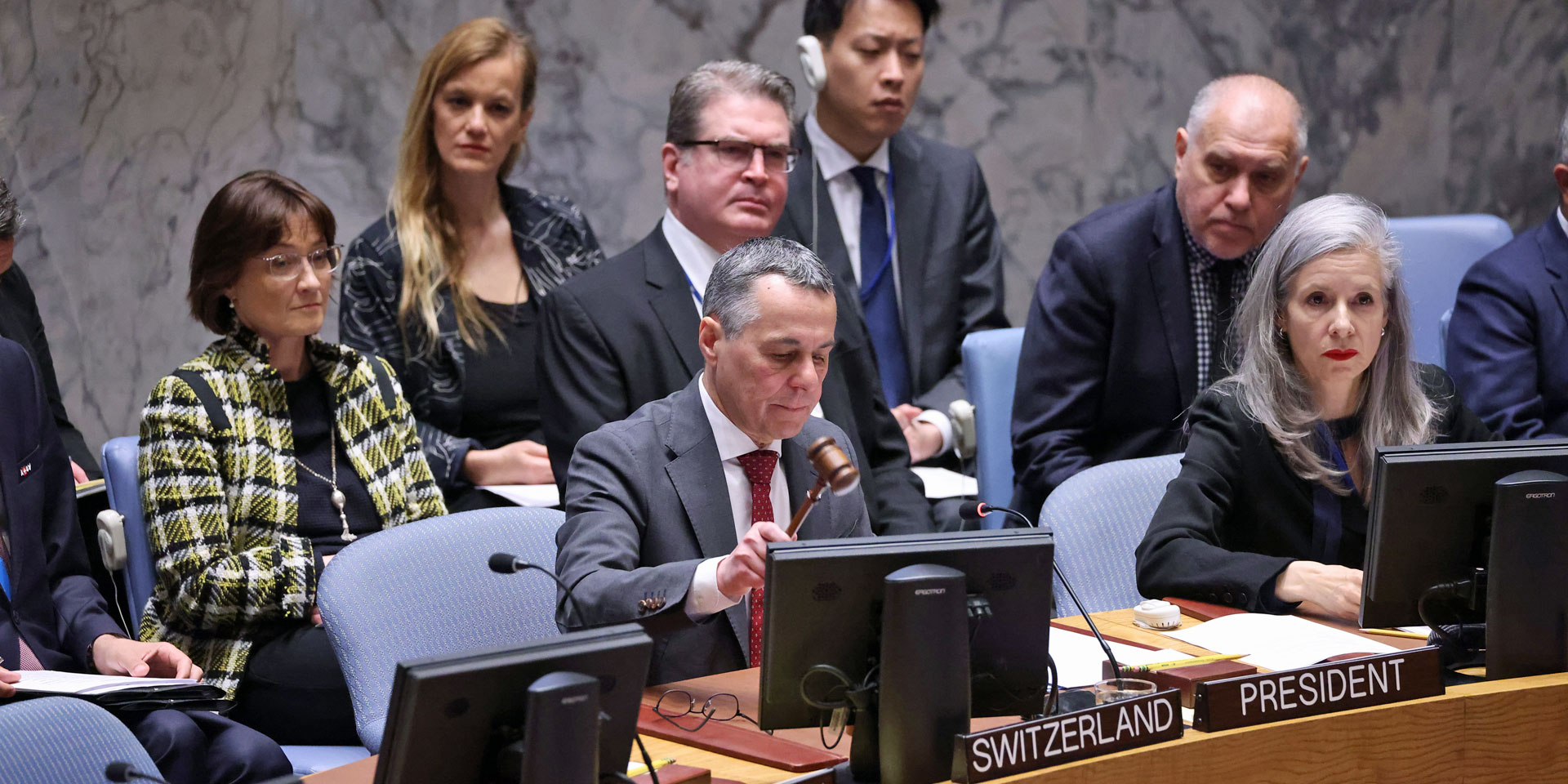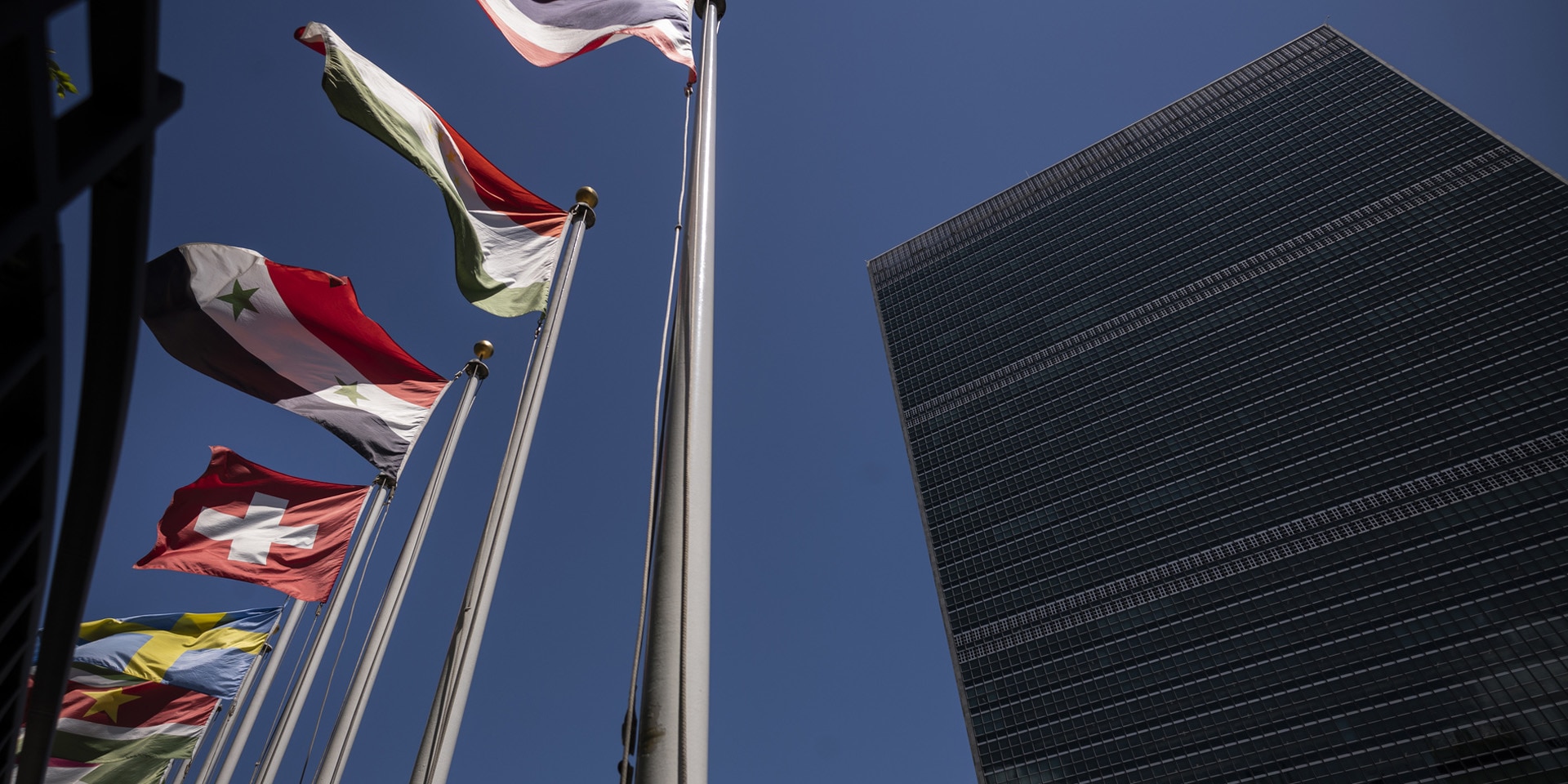Is the UN a toothless tiger?
Representatives of 193 states sitting in a vast hall debating. Does that sound boring? Perhaps, but the UN General Assembly (UNGA) is the only place where all states gather on an equal footing to seek and find solutions to the world's most pressing problems. Thomas Gürber, deputy state secretary of the FDFA and head of the UN Division, shares his thoughts about Switzerland's role in the UN General Assembly.
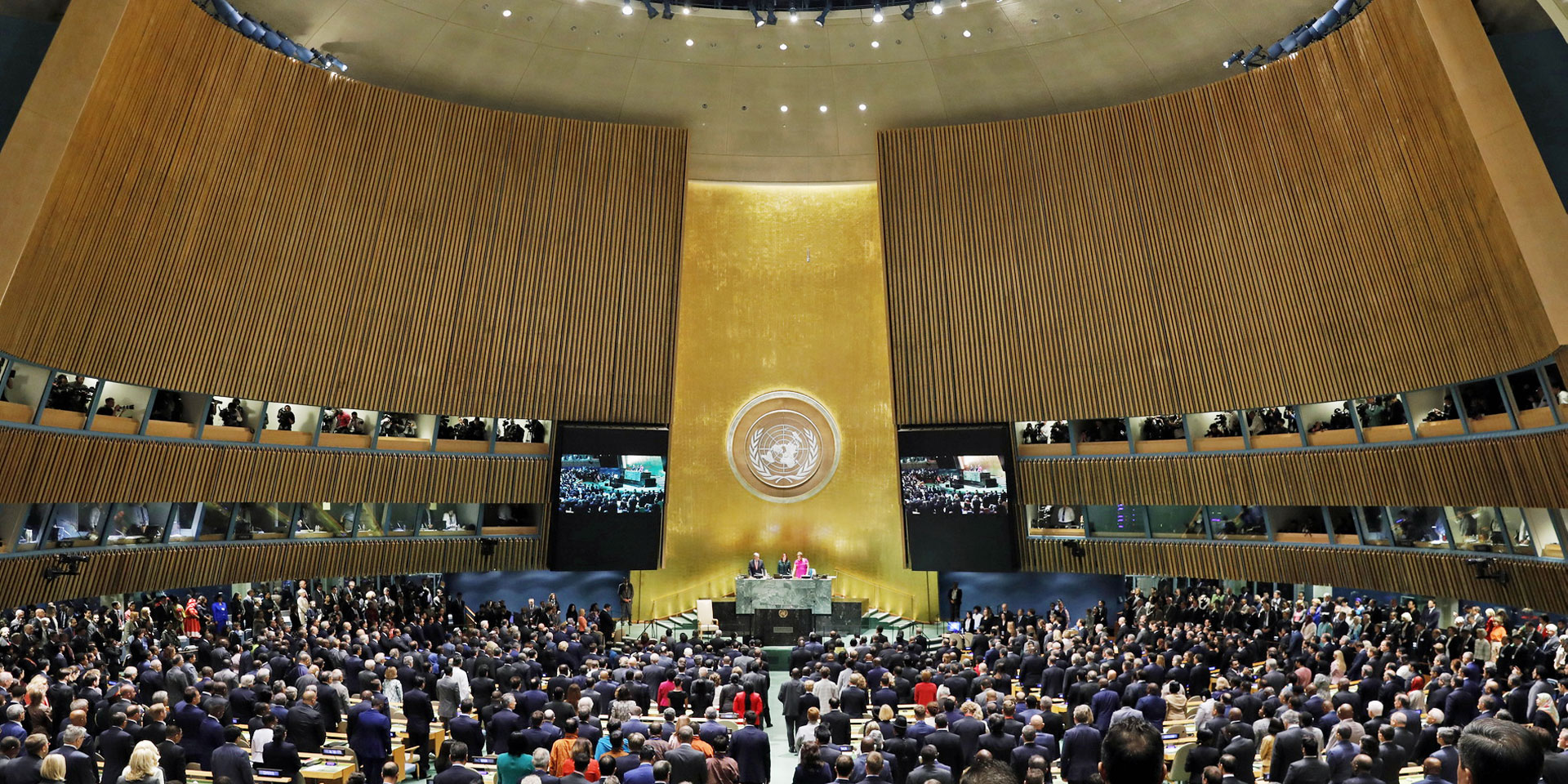
The UN General Assembly is the only body in the world where all states speak to each other as equals. © Keystone
UN General Assembly (UNGA) sessions run from September to September, each year commencing with an opening week attended by numerous heads of state and government from all over the world. Swiss President Alain Berset and Federal Councillor Ignazio Cassis will represent Switzerland at this year's opening week from 18 to 20 September. Switzerland joined the UN in 2002 by popular vote. In an interview with Thomas Gürber, head of the UN Division and deputy state secretary at the FDFA, we find out what the tasks of the UNGA are and what role Switzerland plays.
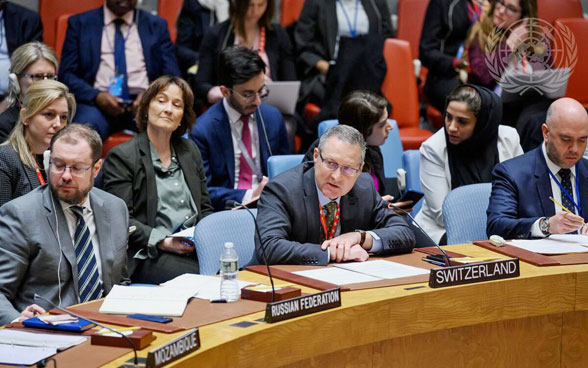
Thomas Gürber, what is the UN General Assembly?
The UNGA is the most comprehensive platform for dialogue in the world. The 193 member states are equal and each has one vote – no matter how 'big' or 'small' they are. The UNGA thus provides a unique opportunity to discuss global challenges such as peacebuilding and peacekeeping, poverty reduction, respect for human rights, humanitarian aid, sustainable development and combating climate change, and to find solutions together.
The tasks of the UNGA are wide-ranging: it approves the UN budget, and adopts resolutions calling on states or parties to a conflict to take specific measures. It should be noted that UNGA resolutions, unlike UN Security Council resolutions, are not binding under international law. However, they carry considerable political weight and can indicate how the pulse of the world is beating on a particular issue. For example, the Russian war of aggression against Ukraine was clearly and unequivocally condemned in the Resolution of 2 March 2022, with 141 votes in favour.
The UN was created after the Second World War to maintain peace and security in the world. Humanity is still confronted with climate change, increasing poverty and numerous unresolved conflicts. Is the UN a toothless tiger?
It is precisely because of the geopolitical tensions and other global challenges that the UN is more important than ever as a platform for dialogue. The problems facing the world require cross-border, coordinated solutions. To find such solutions, all states must talk to each other, and the UNGA is the only body in the world that can enable this. Compared to exclusive bodies such as the G7, the G20 or the BRIC group of states, it has the advantage of being universal and including the global South as well as small and medium-sized states.
The current global political challenges exist despite, not because of, the UN. At the same time, finding consensus among 193 states is of course challenging and time-consuming. The UN is only a reflection of the states of which it is composed. It only works if member states are willing to cooperate. Sometimes states cannot agree on a solution. But you still have to try. And keep on trying. There is currently no comparable alternative to address the major problems of our time.
What role does Switzerland play in the UNGA?
Switzerland and the UN pursue the same goals and advocate the same values: fighting poverty, upholding human rights, democracy, the peaceful coexistence of peoples and the conservation of natural resources. These goals are enshrined in the Federal Constitution as well as in the UN Charter. The UN is therefore an essential means for Switzerland to safeguard its interests and achieve its foreign policy objectives. Switzerland uses the UNGA to exert an active influence.
In its role as a UN member state and host state of many international organisations in Geneva, Switzerland can bring its interests and values to bear at the global level. Since Switzerland's accession to the UN, we have been doing this in the UNGA. Switzerland is often a driving force in this body, spurring on or supporting innovative solutions and reforms. For example, it worked with other states on a resolution to improve the management of water resources. This is important because water is vital to all of us and we need to ensure that this scarce resource is protected and fairly distributed for the future. The resolution convinced the other states and was adopted without a vote.
Which issues are especially important to Switzerland in the UNGA's upcoming 78th session?
Switzerland will play an active role in the upcoming 78th session – as it has done in previous sessions – contributing to UN processes that are in line with our interests. We will cover a wide range of topics, including peace and security, humanitarian aid, human rights, sustainability, the environment and UN reforms. In addition, there are certain thematic areas, such as finance and taxation, where Switzerland wants to ensure with concrete proposals that already existing structures and discussions within the international financial institutions are not duplicated. Switzerland will attach great importance to sustainability issues and especially to the 2030 Agenda.
Unfortunately, UN member states are far from achieving the Sustainable Development Goals set out in the 2030 Agenda, even though the halfway point of the agreed implementation period is already behind us. Strengthening international law is also an important priority for Switzerland. International law provides all states with a secure and clear legal framework, and prevents the supremacy of 'might makes right'. In a period in which international law and human rights are being violated and coming under attack in many parts of the world, it is Switzerland's duty to condemn violations of law and to advocate respect for international law, including international humanitarian law. In all the above-mentioned thematic areas, the UNGA provides Switzerland with a stage to advocate for effective and sustainable multilateralism.

